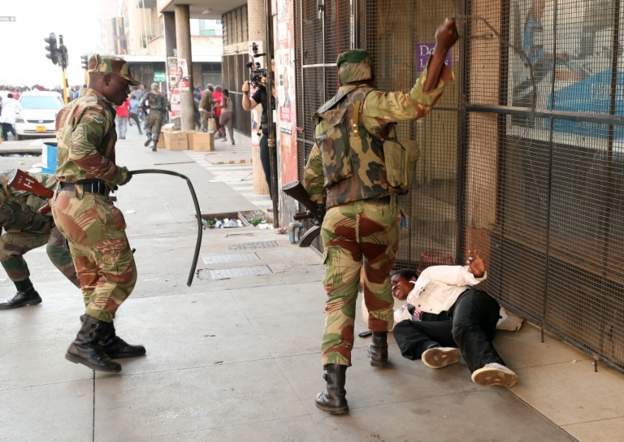The police and army in Zimbabwe have been indicted for killing six people shortly after the July general election.
The security agencies were accused of the killings on Tuesday in a report from a commission of inquiry set up to investigate the post-election violence.
The Zimbabwean President Emmerson Mnangagwa who set up the commission made the details of the findings public at a press conference.
The report said that the security agencies use of live ammunition, whips and gun butts on protesters was unjustifiable.
It however said the agitations from the protesters made the deployment of the military “unavoidable” and lawful.
Opposition protesters clashed with soldiers while agitating over the election results on August 1.
They claimed their leader, Nelson Chamisa had won the election and thronged the streets resulting in a security crackdown.
Six people were killed in the process. During hearings by the commission, the police and army said they could not be blamed for the deaths.
The denials were made despite several video footages showing how soldiers brutalized protesters.
Police had said Mr. Chamisa was facing a possible arrest for the violence. But when he appeared before a commission of inquiry he distanced himself from the violence.
The commission of inquiry said the soldiers and police who broke their codes of conduct should face “internal” disciplinary measures.
The report however said the violent protests were “pre-planned and orchestrated”. It blamed opposition leaders saying they incited violence.
President Mnangagwa said his government decide what to do next with the report after studying it in detail.
Source: Africafeeds.com


